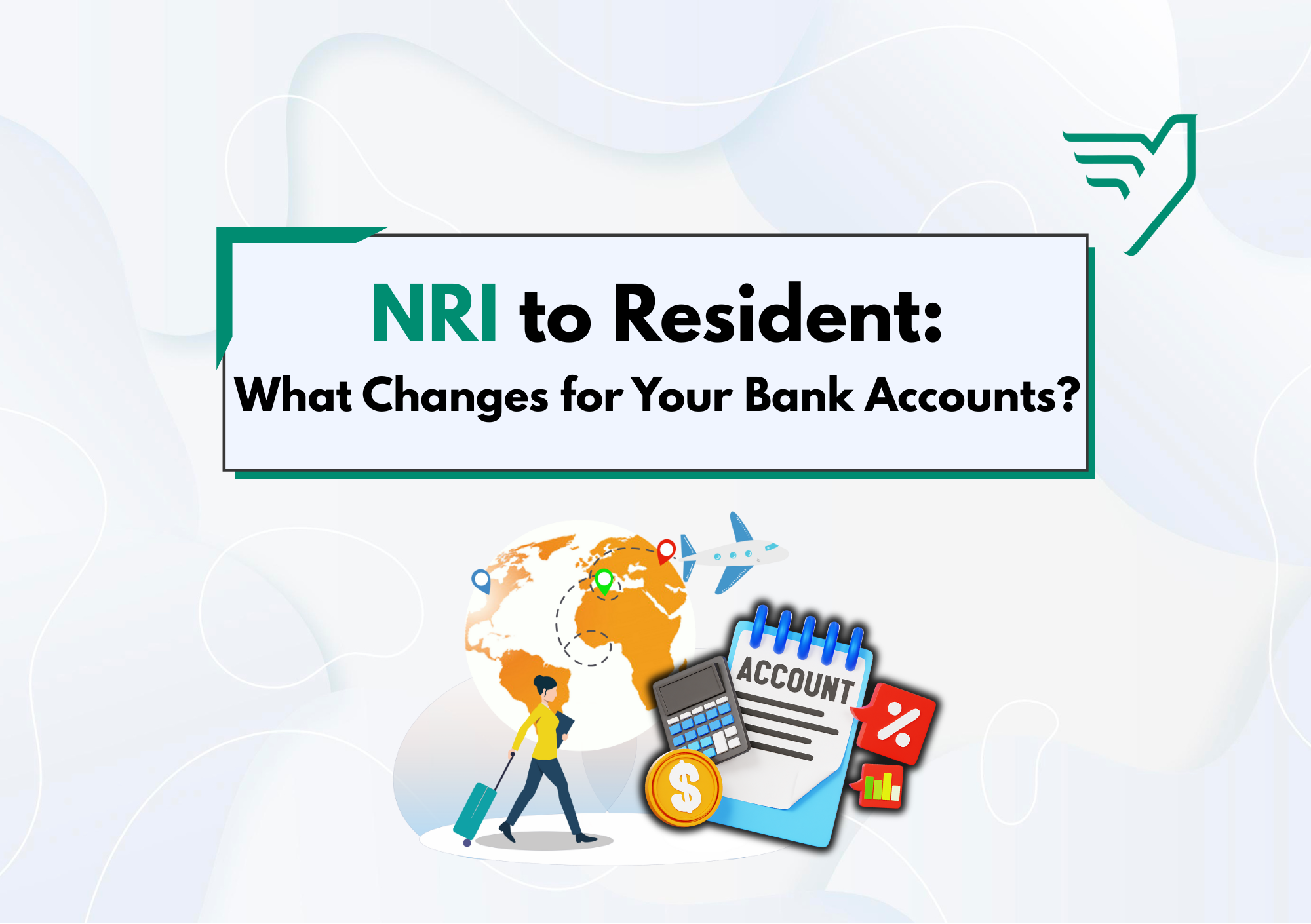For many Indians living abroad, the recent changes in U.S. immigration policy, including the steep new fee on fresh H-1B petitions, have brought an important question to the surface. What if I have to return to India sooner than planned?
When you move back, whether by choice or due to circumstances, your finances do not automatically adjust. One of the first things you must address is the status of your NRE, NRO, and FCNR accounts. These accounts cannot remain as they are once your residential status changes. Knowing what steps to take, and the right time to act, can save you from tax complications and compliance issues.
Why This Matters More Now
The U.S. government’s decision to impose a $100,000 filing fee on new H-1B applications has forced many NRIs to reconsider their plans. Current H-1B holders are not affected, but for those applying fresh, the cost is significant.
If you decide to return earlier than expected, your bank accounts in India need to reflect that change. FEMA (Reserve Bank rules) and the Income Tax Act work independently, and both must be followed carefully.
The Three Phases of Returning
- While You Are Still Abroad (NRI phase)
- Use your NRE account for foreign remittances.
- Keep NRO only for Indian income such as rent or dividends.
- Maintain FCNR deposits for forex-linked, tax-free returns.
- When You Return (RNOR phase – up to 3 years)
- Inform your bank immediately about the change in residential status.
- Open an RFC account to transfer overseas assets.
- NRE deposits can continue, and their interest remains tax-free during the RNOR period.
- Use this window to manage liabilities or plan large remittances before full taxation begins.
- Once You Are a Full Resident (ROR)
- Convert all NRE and NRO accounts to resident accounts.
- FCNR deposits can continue until maturity, but they cannot be renewed.
- RFC accounts can continue, but the interest will now be taxable.
What If You Are Still Unsure?
Not everyone returns with a clear decision. If you are in India temporarily for a sabbatical, family visit, or job evaluation, FEMA allows NRE and FCNR accounts to continue, provided your intent is to return abroad. Banks usually accept a self-declaration, but many will request an update if your stay extends beyond six months.
If you are uncertain, opening an RFC account is a safe option. It allows you to hold money in foreign currency even while being a resident and protects you in case your plans change again.
Practical Checklist
- Within 30 days of return, notify your banks and submit a residency declaration.
- Keep documents such as passport stamps, visa records, and employment letters ready. These serve as proof of intent if required.
- Plan for taxation in advance. Even if your bank has not updated your status, the Income Tax Act will tax you based on your stay in India.
- Use the RNOR period wisely, since it acts as a buffer before your global income becomes taxable.
The Bottom Line
Whether your return to India is sudden due to changes like the H-1B rule, or carefully planned over time, your bank accounts must be aligned with your residency. NRE, NRO, FCNR, and RFC accounts are valuable tools when managed correctly, but they require timely re-designation.
Handle this early, maintain proper documentation, and use the transition period effectively. With the right planning, your financial journey can remain smooth, no matter where you choose to live next.

